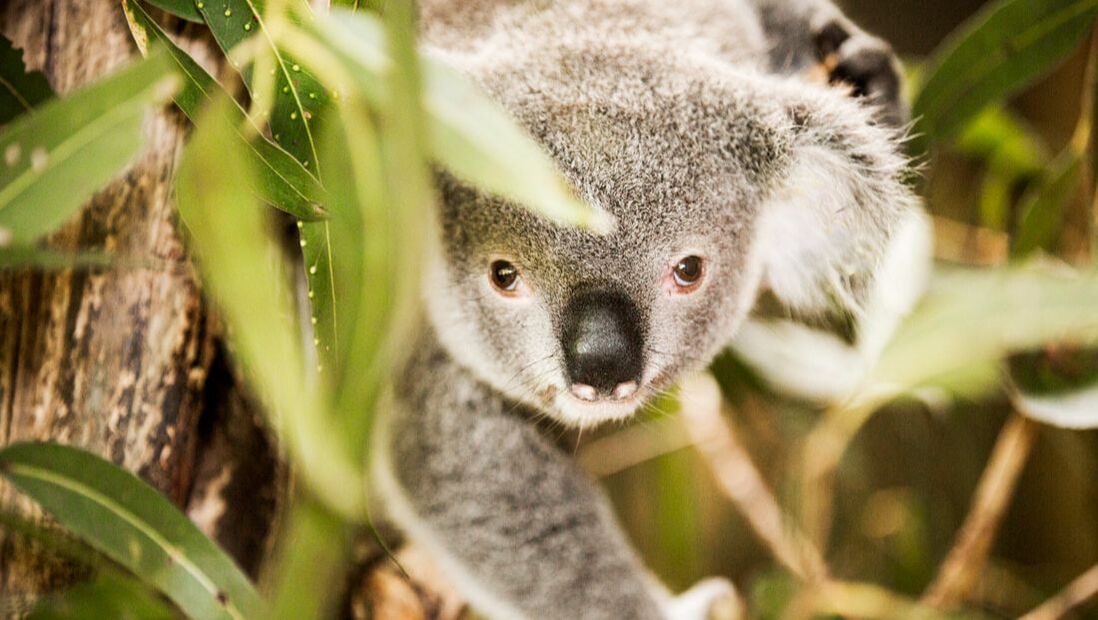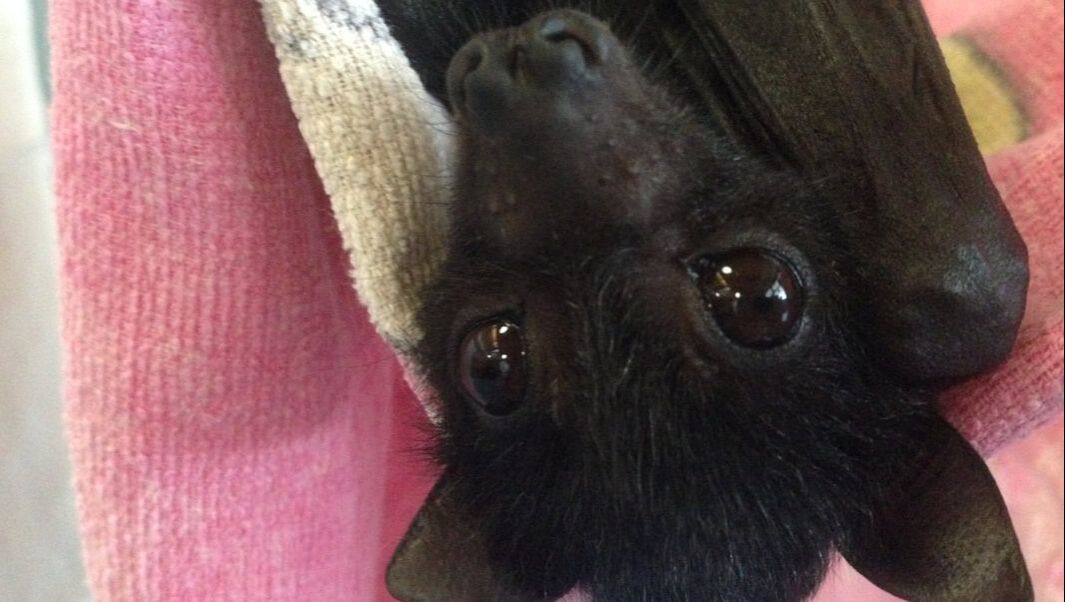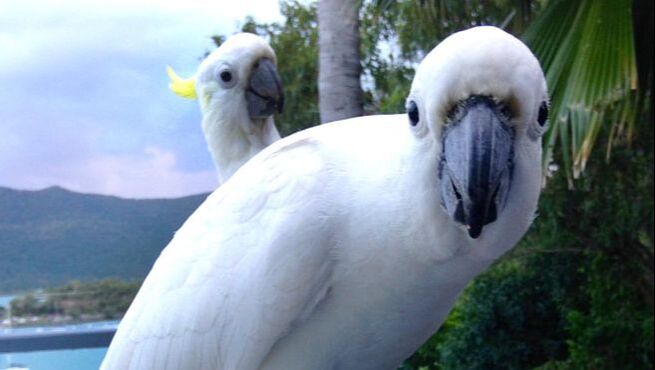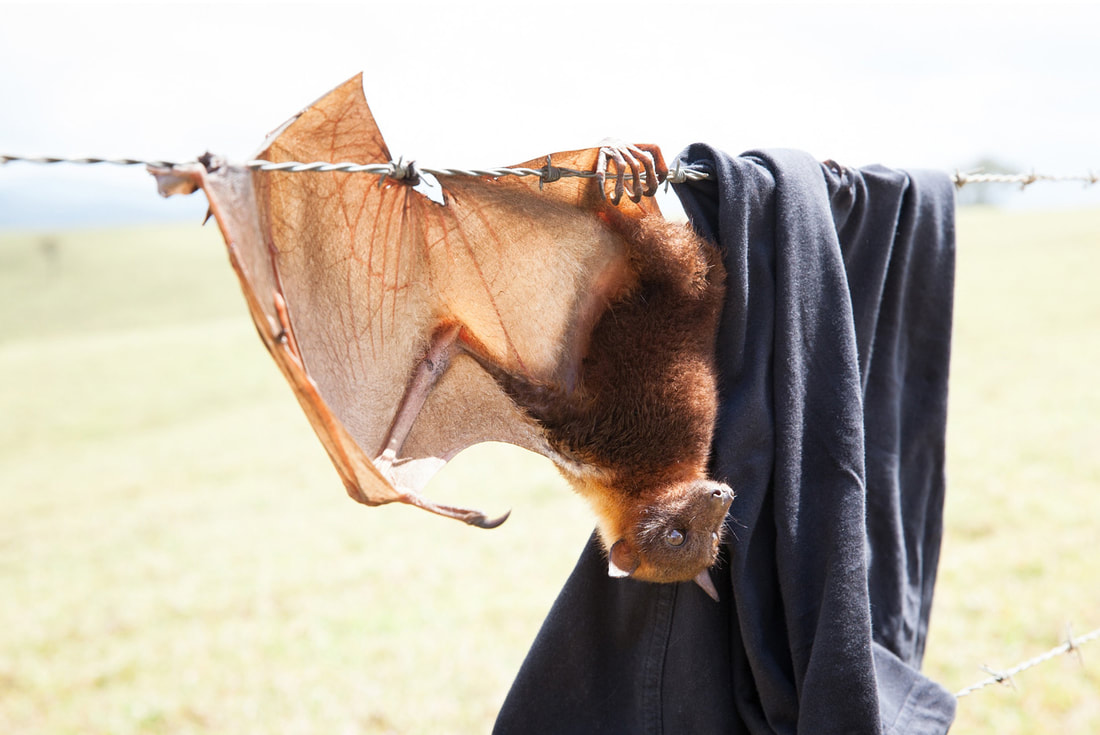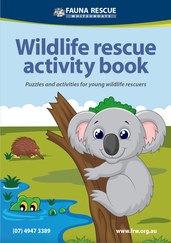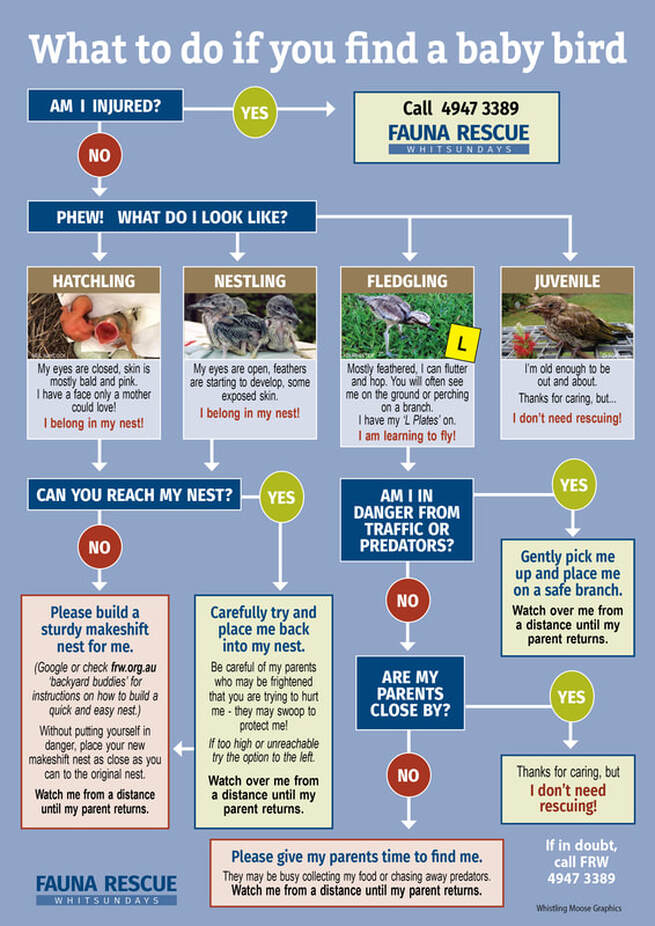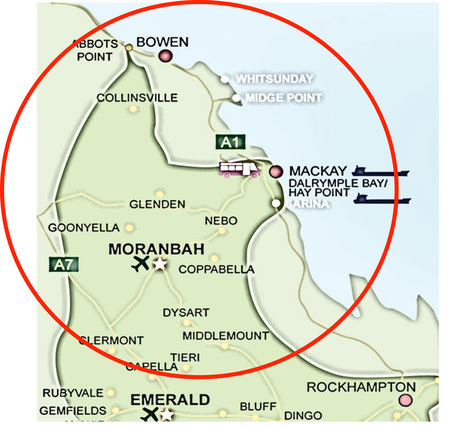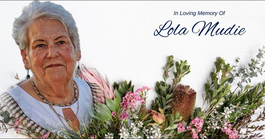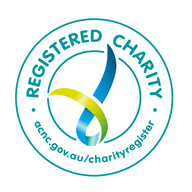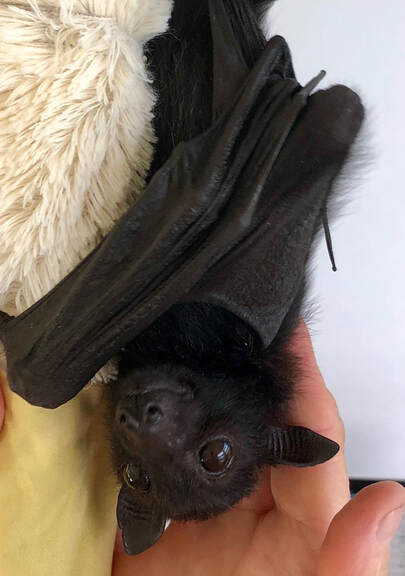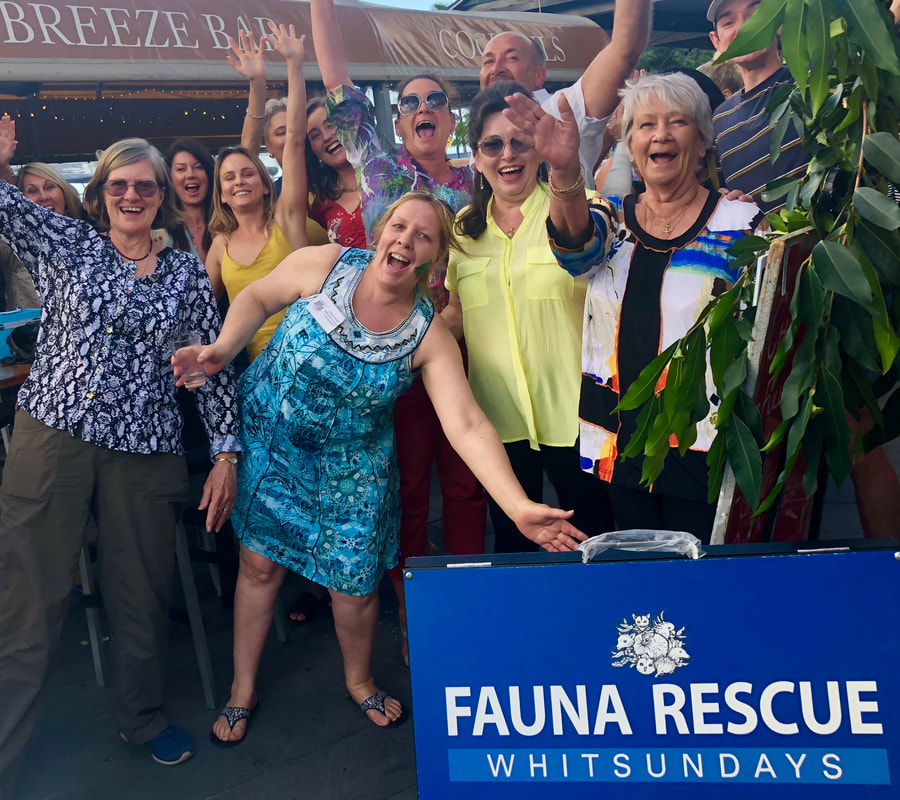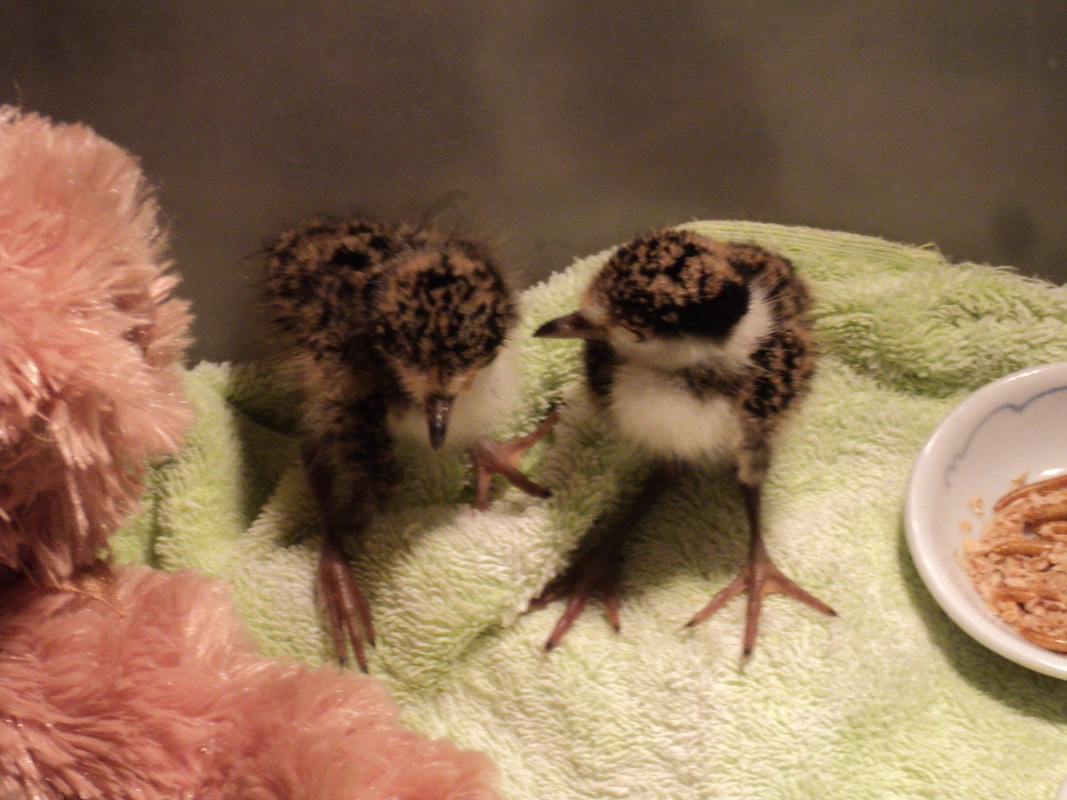"No act of kindness, no matter how small, is ever wasted.”
"No act of kindness, no matter how small, is ever wasted.”
For help with injured or orphaned wildlife call our hotline
4947 3389
We are a non-profit, voluntary group who care for and rehabilitate sick, injured and orphaned native wildlife. We provide a 24 hour wildlife hotline service; give informative talks to schools and other interested community organisations; and we encourage the valuable participation of community members in all our activities.
4947 3389
We are a non-profit, voluntary group who care for and rehabilitate sick, injured and orphaned native wildlife. We provide a 24 hour wildlife hotline service; give informative talks to schools and other interested community organisations; and we encourage the valuable participation of community members in all our activities.
Our native animals need your help!
Rescue responseIf you find an injured animal, remember that it is wild – probably suffering from shock and in pain – MINIMAL HANDLING is a must to avoid additional stress.
|
How you can helpThere's loads of ways you can help! We are desperate for carers but if you are unable to actively care for wildlife there's many other things you can do.
|
Care for habitatYou can be a wildlife carer simply by caring for out native wildlife's habitat.
We have some tips on being a backyard buddy. |
BARBED WIRE FENCES
Urgent Appeal: Protecting Our Wildlife Together
Our wildlife rescuers are witnessing a heartbreaking trend lately: a surge in animals becoming ensnared in barbed wire, resulting in excruciating injuries and eventual deaths. As stewards of our local Aussie wildlife, it’s our responsibility to look after them.
We urge everyone in our community to consider alternatives to barbed wire fencing - particularly the TOP BARBED WIRE – 86% of entanglements are on the top strand. Ideally all fences would have a top strand of plain wire.
If you must use barbed wire, please MAKE IT VISIBLE by covering it with white tape or hang visible materials to enhance visibility and reduce the risk to our precious wildlife.
For further suggestions on how you be part of the the solution - please download the brochure below or go to wildlifefriendlyfencing.orgwildlifefriendlyfencing.org
Urgent Appeal: Protecting Our Wildlife Together
Our wildlife rescuers are witnessing a heartbreaking trend lately: a surge in animals becoming ensnared in barbed wire, resulting in excruciating injuries and eventual deaths. As stewards of our local Aussie wildlife, it’s our responsibility to look after them.
We urge everyone in our community to consider alternatives to barbed wire fencing - particularly the TOP BARBED WIRE – 86% of entanglements are on the top strand. Ideally all fences would have a top strand of plain wire.
If you must use barbed wire, please MAKE IT VISIBLE by covering it with white tape or hang visible materials to enhance visibility and reduce the risk to our precious wildlife.
For further suggestions on how you be part of the the solution - please download the brochure below or go to wildlifefriendlyfencing.orgwildlifefriendlyfencing.org
DOWNLOAD OUR NEWSLETTERS
If you have a story and photos or some information that you would like to have included in the next newsletter, please email [email protected]
If you have a story and photos or some information that you would like to have included in the next newsletter, please email [email protected]
WILDLIFE HEROES - CARING FOR CARERS PODCAST
The Foundation for National Parks and Wildlife has teamed up with podcast producer Gretchen Miller, wildlife carers and mental health experts to share stories and perspectives about climate worry, personal wellbeing, community conflict, catastrophic events, and supporting others. Australia’s 15,000+ wildlife volunteers work hard, under intense conditions. The Wildlife Heroes: Caring for Carers Podcast aims to start a mental health conversation to support our volunteers to look after themselves and each other.
This series, along with the other Resources on the Two Green Threads website aims to stimulate and normalise conversations to support our wildlife volunteers, to look after ourselves and each other. Hearing from one another about how we express the journey of being a wildlife carer is fundamental form of sharing and connection which may help others make sense, or reflect on their own journeys. Listening to the podcast series or through the other Two Green Threads resources to date may offer you the chance to open a conversation with someone who may feel like talking but not know where to start.
The Foundation for National Parks and Wildlife has teamed up with podcast producer Gretchen Miller, wildlife carers and mental health experts to share stories and perspectives about climate worry, personal wellbeing, community conflict, catastrophic events, and supporting others. Australia’s 15,000+ wildlife volunteers work hard, under intense conditions. The Wildlife Heroes: Caring for Carers Podcast aims to start a mental health conversation to support our volunteers to look after themselves and each other.
This series, along with the other Resources on the Two Green Threads website aims to stimulate and normalise conversations to support our wildlife volunteers, to look after ourselves and each other. Hearing from one another about how we express the journey of being a wildlife carer is fundamental form of sharing and connection which may help others make sense, or reflect on their own journeys. Listening to the podcast series or through the other Two Green Threads resources to date may offer you the chance to open a conversation with someone who may feel like talking but not know where to start.
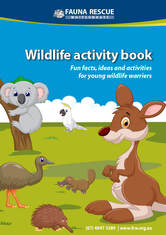
TEACH YOUR CHILDREN KINDNESS
Teaching compassion for creatures can help kids develop empathy for all living things, including their fellow human beings. Encouraging respect for animal habitats is an important part of teaching kids about protecting the environment.
As well as providing important school and community talks, we have produced a children's activity booklet.
Teaching compassion for creatures can help kids develop empathy for all living things, including their fellow human beings. Encouraging respect for animal habitats is an important part of teaching kids about protecting the environment.
As well as providing important school and community talks, we have produced a children's activity booklet.
| FRW kids activity.pdf | |
| File Size: | 6300 kb |
| File Type: | |
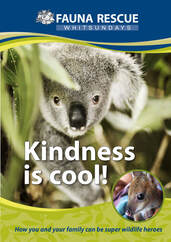
| Kindness is Cool booklet.pdf | |
| File Size: | 6642 kb |
| File Type: | |
| frw_toddler_booklet_web.pdf | |
| File Size: | 13111 kb |
| File Type: | |
IT'S BABY BIRD SEASON!
Do you know what to do if you find a baby bird? Follow our step by step guide:
Do you know what to do if you find a baby bird? Follow our step by step guide:
OUR SERVICE AREA
"Being a volunteer for Fauna Rescue is the most fulfilling experience. We've met some great people and we really feel that we're doing something positive for our local wildlife."
THE THRILL OF THE CHASE CAN BE DEADLY!!
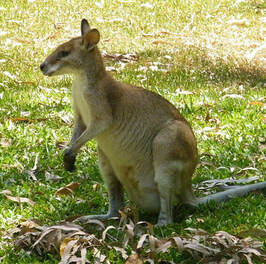
Myopathy in wallabies, pademelons and kangaroos happens when the animal is under extreme stress, such as being attacked or chased by a dog. She does not have to be injured directly to develop rhabdomyolysis (disintegration of the muscle fibres). From within 24 hours up to a few weeks after the incident, the animal will show stiffness and hindquarter paralysis, progressing to complete paralysis. She will be distressed and anxious and salivate excessively. She will die 2-14 days after the stressful incident.
We think that if our pet did not attack the wallaby, all is well - But now you know – the wallaby may have gotten away, but it did not necessarily escape a painful and slow death.
It is avoidable, just by restraining your dog.
We think that if our pet did not attack the wallaby, all is well - But now you know – the wallaby may have gotten away, but it did not necessarily escape a painful and slow death.
It is avoidable, just by restraining your dog.
Fauna Rescue Whitsundays Association Inc is proudly supported by:
Volunteering Qld - 2020 National Volunteer Week Small Grants Initiative.
Department of Environment and Science - Wildlife Carers Assistance Grant – Food for Wildlife.
Department of Environment and Science – Community Sustainability Action Grants – Flying Fox Heat Stress Event .
Department of Transport and Main Roads – Fauna Rescue Whitsundays Wildlife Signage
Stanmore Coal – Possum Release Trailer in Moranbah
Stanmore Coal – Community Partnership – Funding to support resources
IFAW (International Fund for Animal Welfare) – Replace aviaries and enclosures
Aurizon - Community grants – Humidicribs for rescued sick, injured and orphaned wildlife
Northerlies Beach Bar and Grill – Fundraising and Awareness Events
Fauna Rescue Whitsundays Association Inc is proudly supported by:
Volunteering Qld - 2020 National Volunteer Week Small Grants Initiative.
Department of Environment and Science - Wildlife Carers Assistance Grant – Food for Wildlife.
Department of Environment and Science – Community Sustainability Action Grants – Flying Fox Heat Stress Event .
Department of Transport and Main Roads – Fauna Rescue Whitsundays Wildlife Signage
Stanmore Coal – Possum Release Trailer in Moranbah
Stanmore Coal – Community Partnership – Funding to support resources
IFAW (International Fund for Animal Welfare) – Replace aviaries and enclosures
Aurizon - Community grants – Humidicribs for rescued sick, injured and orphaned wildlife
Northerlies Beach Bar and Grill – Fundraising and Awareness Events
Proudly powered by Weebly

